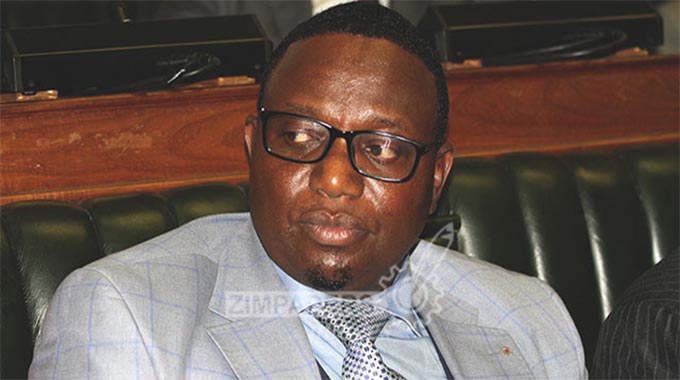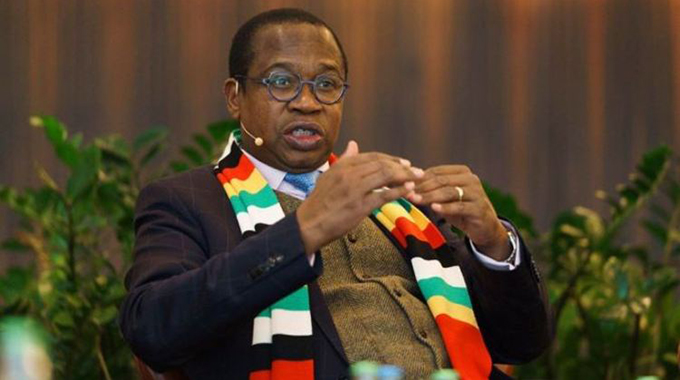ED attends Rwanda Liberation Day

Samuel Kadungure in Kigali, Rwanda and Kudakwashe Mugari in Harare
PRESIDENT Mnangagwa is in Rwanda for the 25th Liberation Day celebrations slated for today at Amahoro Stadium in Kigali.
The commemorations, which reflect on the overthrow in 1994 of the genocidal regime that massacred at least a million people in about 100 days, will also be attended by presidents Dr Mokgweetsi Masisi (Botswana); Hage Geingob (Namibia); Faure Gnassingbe (Togo), Faustin-Archange Touadera (Central Africa Republic (CAR); Mohamed Abdullahi Farmajo (Somalia) and Julius Maada Bio (Sierra Leone).
Rwandan President Paul Kagame will officiate at the event which will be held under the theme, “Together we prosper”.
Deputy Chief Secretary to the President and Cabinet (Presidential Communications) Mr George Charamba said President Mnangagwa was invited by President Kagame to be part of the Liberation Day commemorations, adding that this was also an opportunity for Harare to strengthen bilateral relations with Kigali.
‘‘Rwandese have decided to turn the day to mark the internal conflict situation in their own country and renamed it Liberation Day. Essentially, what we are doing as Zimbabweans is to show solidarity with Rwandese people and Rwandese government, and this following an invitation from his Excellency, President Paul Kagame of Rwanda to his counterpart, President Mnangagwa,” he said.
‘‘But beyond that, we have been exchanging expertise particularly in development programmes of creating ZIDA (Zimbabwe Investment Development Agency) where we got an expert from Rwanda to talk, not just to civil servants but also to address Cabinet on the same matter.’’
Mr Charamba said President Mnangagwa’s visit to Rwanda is also important in that Rwanda
is a model for growing African economies.
‘‘Rwanda has been a blueprint in terms of how to recover and transform economy in a market-oriented direction which is investment-linked. So, there has been that association between us and Rwanda.
‘‘President Kagame is also the past chairman of the AU (African Union) and as you know, the African Continental Free Trade Area was signed in Kigali. So Rwanda has been playing a critical role in continental politics and economic integration consistent with Vision 2063 of African Union.’’
They Liberation Day will be marked by patriotic and solemn speeches, cultural events, special ceremonies, military parades, concerts and sport matches.
It will be a time of both festivity and sombre reflection on the genocide when Hutu extremists rose up against the Tutsi class and massacred them.
Rwandans mourn the genocide victims for 100 days – starting from April 6 to July 4, the time it took the Rwanda Patriotic Front (RPF) forces to stop the wanton killings in 1994.
On April 6, 1994, a plane carrying then-President Juvenal Habyarimana and his counterpart, Cyprien Ntaryamira of Burundi – both Hutus – was shot down killing all on board.
Hutu extremists immediately started a well-organised mass killing of Tutsis. The plane was allegedly shot by the extremists to provide an excuse for the genocide.
Most of those who died were minority Tutsis and moderate Hutus, killed by Hutu extremists.
Little was done internationally to stop the killings, and though the UN and Belgium had forces in Rwanda, the UN mission never acted until President Paul Kagame led the RPF forces that marched on Kigali to quell the massacres.
Rwanda has established more than 200 sites across the country where the genocide victims were interred in mass graves.
At the Kigali Genocide Memorial Centre (KGMC), more than 250 000 victims were buried in eight mass graves, which consist of concrete crypts three metres deep each, filled from the floor to ceilings with coffins.
The coffins rarely contain the remains of an individual victim, but are only symbolic of the dignity that the people of Rwanda wish to accord the victims.
Some of their relatives yesterday had an opportunity to lay flowers and offer prayers on the site.
The centres serve as places of dignified remembrance for loved ones lost and a place of reflection and learning for the wider community, both in Rwanda and internationally.
While the genocide had cast a long shadow over Rwanda, the country has recovered economically with President Kagame’s policies encouraging rapid growth and technological advancement.
According to the African Development Bank, Rwanda’s growth was 7,2 percent in 2018.
The country has also made great strides in building infrastructure and stamping out corruption.
With a population of 12,5 million people, Rwanda is regarded as the smartest country in Africa.
Meanwhile, President Mnangagwa was received at the Kagame International Airport by Rwandan Foreign Affairs Minister Dr Richard Sezibera and the Zimbabwe embassy staff.
The President was accompanied by Foreign Affairs and International Trade Minister Dr Sibusiso Moyo and senior Government officials.







Comments